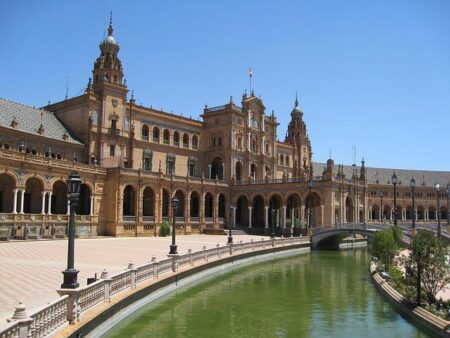In a surprising turn of events, European golf chief Keith Pelley has made headlines with a revelation regarding the ongoing relationship between the PGA Tour and the Public Investment Fund (PIF) of Saudi Arabia. During a recent press conference, Pelley acknowledged complexities that could reshape the landscape of professional golf as we know it. The admission has sent shockwaves throughout the sport, raising questions about the future of both tours amid mounting scrutiny and shifting alliances. As the world of golf grapples with the implications of this revelation, industry experts and players alike are left to ponder the potential changes on the horizon. This article delves into the details of Pelley’s statement and its broader ramifications for the world of golf.
European Golf Chief Reveals Surprising Involvement of PGA Tour in PIF Negotiations
The landscape of professional golf could be undergoing a seismic shift, following revelations from a prominent European golf executive about the PGA Tour’s unexpected engagement with the Public Investment Fund (PIF). In a candid interview, the golf chief disclosed that the PGA Tour has been actively involved in discussions with PIF representatives, challenging the long-held perception that the PGA was staunchly opposed to external financial interests in the sport. This development raises pertinent questions about the strategic direction of both organizations and the potential implications for players, sponsors, and fans alike. The admission has left many in the golf community pondering whether this collaboration could redefine competitive dynamics in international golf.
Key details from the discussions highlight the following points:
- Financial Investment: The PGA Tour is exploring investment opportunities with PIF that could bolster its financial stability and competitive edge.
- Player Compensation: Increased funding may allow for enhanced prize pools, potentially attracting top talent from around the globe.
- Global Expansion: A partnership could facilitate greater international events, enhancing the Tour’s profile and audience reach.
Amidst these revelations, the golf chief emphasized the necessity of adapting to the evolving financial landscape while remaining committed to the essence of the sport. In a world where financial backing increasingly influences the trajectory of sports leagues, the PGA Tour’s willingness to reassess its stance raises intriguing prospects for the future of professional golf.
Implications for the Future of Golf: Recommendations for Stakeholders and Fans
The recent revelations involving the PGA Tour and the Public Investment Fund (PIF) have far-reaching implications for the future of golf. Stakeholders, including tournament organizers, sponsors, and governing bodies, must adapt to the shifting landscape. Transparency and communication will be vital in maintaining trust while navigating this transformative period. To harness the potential growth fueled by partnerships with international investors, the golf community should consider implementing practices that emphasize ethical funding and sustainability. This may involve developing a framework that ensures all financing avenues prioritize the sport’s integrity and inclusivity.
Additionally, fans of golf should actively engage in discussions regarding the direction of the sport. Establishing feedback channels for fan input can enhance their experience and ensure that their voices are heard in decision-making processes. Stakeholders should consider organizing open forums or Q&A sessions to address fan concerns and expectations. A collaborative approach could result in a tour that not only thrives monetarily but also resonates culturally, reflecting the ideals of golf as a sport that values tradition, community, and fair competition.
In Summary
In a remarkable turn of events that is poised to reshape the landscape of professional golf, the admission by the European golf chief regarding the PGA Tour’s dealings with the Public Investment Fund (PIF) has sent shockwaves through the sport. As more details continue to emerge, stakeholders are left to ponder the potential ramifications for both tours and the players who compete in them. This development not only raises questions about governance and transparency within the sport but also underscores the increasing influence of financial power in shaping competitive narratives. As the golf community reacts to these revelations, all eyes will be on how the governing bodies respond, and whether a new era of collaboration or conflict will define the future of professional golf. Stay tuned as we continue to follow this evolving story.








